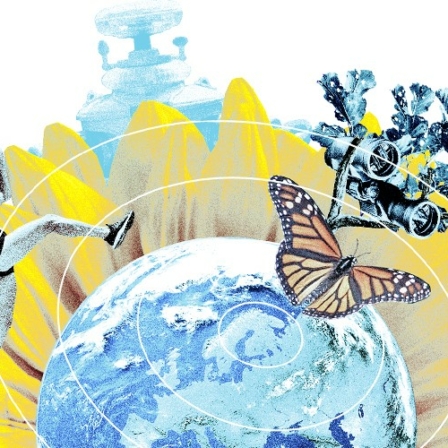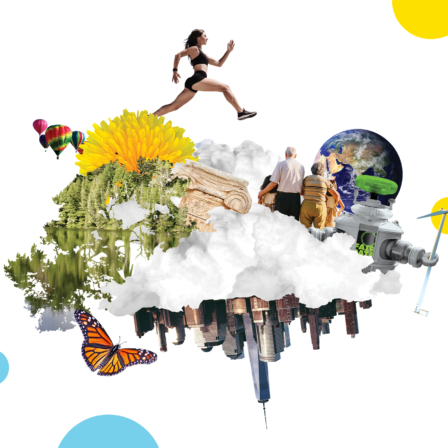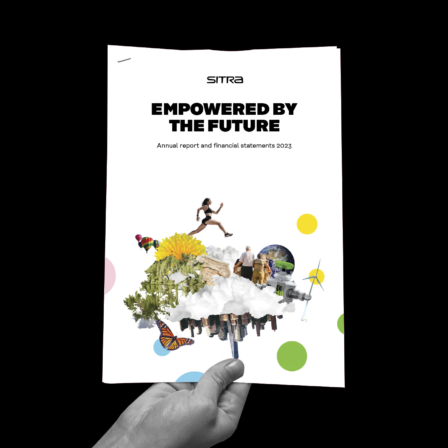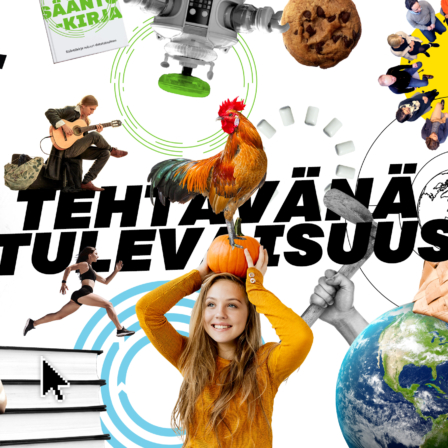Anders Wijkman is a Swedish opinion leader and author. He is active in organisations such as the Club of Rome, Climate-KIC and the International Resource Panel. Wijkman has brought his globally recognised environmental expertise to Sitra, where he is a member of the Sitra Advisory Panel.
What should Finland be proud of?
I’ve always been impressed with Finland and have worked with Finns for a long time. I was the Secretary General of the Swedish Red Cross and worked closely with the Finnish Red Cross in the 1980s during the Cold War. Swedish and Finnish Red Cross delegates were perceived as “doubly” neutral, and were in high demand in trouble spots all around the world.
In general, Finns are straightforward and give little nonsense. They are results-oriented and trustworthy.
What about specific things Finns should be pleased with?
Regarding sustainability there are two things Finland has taken the lead in: the bioeconomy and circular economy. These are complex and important issues.
The circular economy requires changes in policy frameworks, particularly EU-level changes which we have seen little of yet. Finland has been on the forefront of these discussions, but they need to find other strategic partners among EU member states to help push the European Commission. In particular, the Nordic countries don’t co-operate enough.
Finland has taken lead in the circular economy.
With the bioeconomy – specifically replacing fossil-based materials with wood products – Finland is ahead of Sweden. Carbon accounting is holding us up. We need to improve how to measure the impact of various types of substitutions. There is a vivid debate among forest researchers how to best manage the forests.
What kind of challenges does Finland face?
Finland faces the same challenges as the rest of us. There are political trends like the rise of the ultra-right, questions about multilateralism and tension between the elite and the rest of the population. Disruptive technologies and digitalisation have led to big corporate monopolies and risks which politicians do not seem to understand. And, of course, one of the largest challenges is climate change and the overuse of many vital ecosystems. There are limits to conventional growth that most people don’t want to recognise.
Let’s start with politics. Tell us what trends you see there.
The ultra-right is gaining in popularity in many countries. These movements contributed to the success of Donald Trump in America, Viktor Orbán in Hungary and Brexit. Conventional parties often respond by calling them fascists, racists or idiots. Even if some of the leaders in these parties have fascist roots, we have to recognise that there are some things in the ultra-right’s criticism we have to take seriously. Globalisation has led to many losers and increased tensions between people living in major cities and rural areas.
Multilateralism is being questioned even in Europe. This requires a rethinking of policies and international co-operation. I’m not very optimistic about the EU because I don’t see any strong European leaders on the horizon. We need people with a positive vision to address and resolve these issues.
What issues should concern us with disruptive technologies and digitalisation?
Consider technologies such as AI (artificial intelligence) and automation. These offer many opportunities, but they also have the potential to cause massive disruptions to our society. However, the only concerns raised by politicians have been about Russian trolls interfering in elections. What about privacy? What about “who owns our data?” What about jobs and education? What about income distribution? What about human enhancement? What about AI and weapons?
Recently Microsoft approached the US Congress and asked for legislation on facial recognition technology. Imagine what this technology could do in the hands of a repressive society or if it is weaponised. The companies understand the potential risks these technologies bring, even if the legislators do not. Here I believe Sitra could play a very important role by helping legislators – first and foremost in Finland, but probably also elsewhere – about the risks we are facing and what type of policy frameworks that are required.
People are still more concerned with profits than the planet.
You are a global expert on climate change, so we’re very interested in what you think in this area.
We need to rethink economics because the neoclassical model has totally failed when it comes to preserving our environment and mitigating climate change. However, the ruling class is still preaching more of the same. One of the winners of the Nobel Prize in Economics in 2018, William D. Nordhaus, claims it is too expensive to keep the rise in global temperatures below 2 degrees. Instead he is actively advocating that we should be okay with a 3.5-degree temperature rise. Most climate scientists say this would be a disaster.
The fact seems to be that people are still more concerned with profits than the planet. This is a major, major problem and we are far from the solution. It is evident to me that we need a different economic policy framework in a world which will soon have 8 billion people, instead of the market economy that was developed when we were around 2 billion people. The world is full!
What kind of solutions do you see for climate change?
One is the circular economy. Most experts are pushing us to completely decarbonise energy and to have 100 per cent renewables. This is good, but they ignore how products are created in the old linear model. The process of creating things like steel, cement, plastics and textiles depend on fossil fuels. By one estimate 25 per cent of our carbon emissions comes from the production of basic materials. It takes much less energy to keep materials in circulation than it does to produce new products from virgin materials.
What should Sitra do in this environment?
Exactly what it is doing. Sitra provides studies, promotes debate and helps legislators to understand what is happening in the world. When I was in the European Parliament only 6 of the more than 700 members had a science background. Most legislators have no background in science and we can’t expect them to fully understand the important issues like climate change, biodiversity loss and the development of disruptive technologies ahead of us.
Sitra is unique in this sense, and in a perfect world all legislators would have access to something similar. Legislators need help to make judgements – first and foremost in relation to science and technology – and they can receive it from Sitra.
This is something I plan on recommending to Sitra. They should invite maybe twenty or thirty MPs from some twenty parliaments around the world to a conference in Helsinki where they would be exposed to the services provided by Sitra. This can motivate other countries around the world to establish technology assessment mechanisms like Sitra.
Do you have anything else you think Sitra might be interested in, such as from one of the other organisations in which you are involved?
Several of these organisations have similar agendas as Sitra, such as low carbon development and solutions. I think Sitra should take a look at Climate-KIC’s most recent publication, and, indeed, the Club of Rome Climate Emergency Plan.
Thank you very much for talking to us today. We really enjoyed it.
You’re welcome. It is interesting being on the Advisory Panel and I enjoy the discussions we have. I benefit from Sitra’s work and use it myself. I am very proud to be on the Advisory Panel.

















Recommended
Have some more.